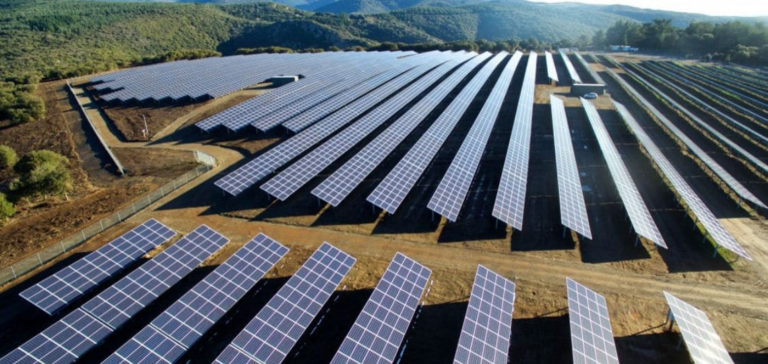ENGIE Deutschland and the developer Cromess are developing solar energy in Germany. The solar park, located in Marlow, is expected to generate approximately 51 GWh of renewable energy per year. A project that is part of the country’s desired energy shift.
A large-scale project
The energy company ENGIE Deutschland and the developer are planning to build a ground-mounted photovoltaic power plant in the city of Marlow. In general, these projects are often large-scale and require significant investments.
Therefore, the solar park built on an area of 44 hectares will have a production capacity to generate about 51 GWh of renewable energy per year. ENGIE and Cromess wish to meet the electricity consumption of 12,750 households and a CO2 saving of about 1,900 tons of CO2/year.
For the time being, the solar project has received the approval of the city council, a necessary step in Germany. The partners are now working on the rapid preparation of the development plan and the construction permit, with a view to commissioning the project by 2024.
Limit the environmental impact of construction
The installation of a ground-mounted power plant on large areas raises many environmental issues. In fact, in addition to the impact of the panels on the vegetation, the construction is often criticized by environmental protection associations.
Thus, significant impacts are recorded during earthworks, archaeological excavations or brush clearing. As a result, the City of Marlow has established several criteria for environmentally compatible implementation.
As these criteria were met by both partners, the City Council adopted the project by a majority vote. In addition, ENGIE and Cromess have highlighted the economic opportunity that the solar park represents for the city and Germany.
Contributing to the German energy turnaround
Germany has made the energy transition one of its priorities. Still dependent on imported fossil fuels, Berlin recently presented a legislative package to achieve this energy turnaround. In fact, the country wants 80% of gross electricity consumption to come from renewable sources by 2030, and almost all by 2035.
Ralf Schürkamp, CEO of ENGIE Deutschland, confirms his commitment to the energy turnaround:
“We are pleased to be able to contribute to the German government’s ambitious PV expansion goals with this and other projects. We have expanded our pipeline of PV projects in Germany by over 300 MW since January 2022.”
The government wants to increase its onshore installation from 59 GW to 215 GW for solar PV.






















